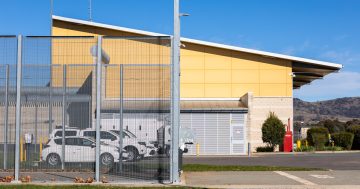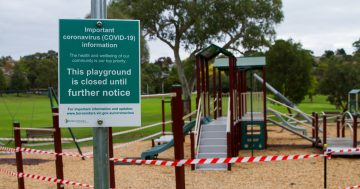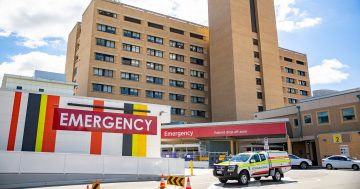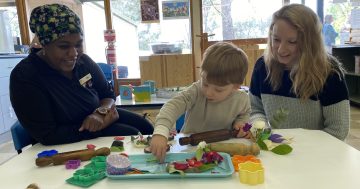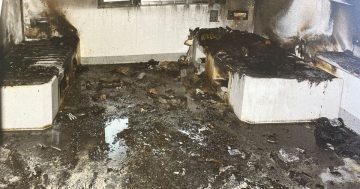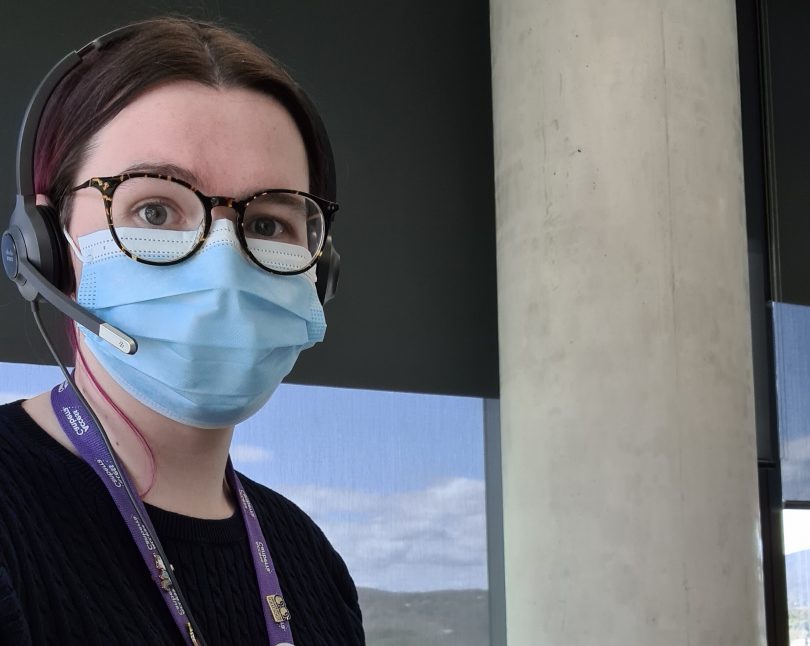
Kaitlyn Birrell works on the COVID-19 hotline and understands the questions Canberrans have about lockdown. Photo: ACT Government/Access Canberra.
When it comes to having your finger on the pulse of the city during unprecedented times such as the ongoing lockdown, there’s probably no-one more qualified than the people who work the COVID-19 hotlines.
They come to learn the frustrations of the community – occasionally in great detail – and this week the COVID-19 hotline will answer call number 200,000 since the line was established in April 2020.
That translates to just under half the population of Canberra calling this number in a period of five weeks.
Kaitlyn Birrell is one of the many ACT Government staff who was drafted in from across various directorates – in her case, Access Canberra – to help with the mammoth effort.
While lockdown has been scary for almost everyone, Kaitlyn suddenly found herself in a new role, and she was one of the people expected to have the answers.
She says the first few phone calls were “terrifying” as she only had two hours’ of training before answering the first call.
The voices coming down the phone were, in many cases, concerned, frustrated, angry, worried and confused. Life had changed drastically in less than 24 hours and so had Kaitlyn’s work.
“I can still remember the first call I got,” she says. “I spoke to a lady who was panicking because she said she might need to take her mum to hospital, but the whole household was in quarantine.
“I put her on hold to work out what to do, and it turned out that a telehealth appointment with a GP would suffice.
“So, yes, a lot of drama for a simple solution.”
Each time Kaitlyn answered another call, there were another 200 or so people in the queue. Now there’s almost no wait.
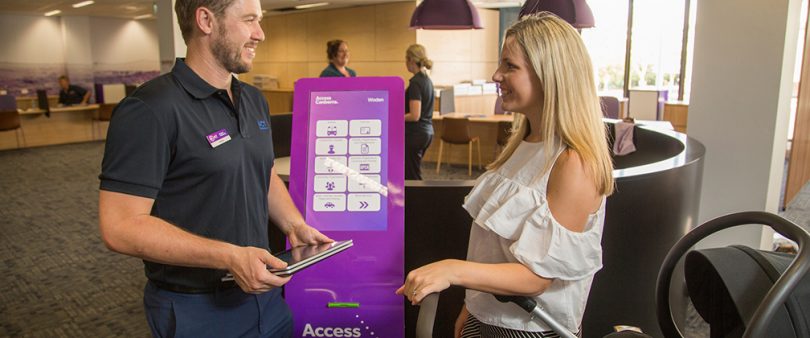
With Access Canberra closed during lockdown, many of its staff are now working on the COVID-19 hotlines and at the Access Canberra contact centre. Photo: Access Canberra.
In the beginning, Kaitlyn was fielding calls about what was allowed. She said it was anything from, “Am I allowed to go for a walk?” and “Am I OK to do my groceries?” to “Can I go to Yass to buy a puppy?”
(In case you’re wondering, the answers to the above are yes, for a maximum of two hours; yes, but you’re encouraged to limit the amount of time you spend there; and, no.)
As the week went on, the volume of calls increased to coincide with the peak volume of Canberrans being placed into quarantine. That peaked at just over 20,000.
Another busy period was when that two weeks of quarantine came to an end and people waited for a notification from ACT Health allowing them to leave.
Many of these were delayed, but Kaitlyn says in this instance, the increased workload fell upon ACT Health teams and their phone lines.
When changes to restrictions come through, she also doesn’t get forewarning, which means a lot of it is a learning process for the hotline team, just as it is for all Canberrans.
Now five weeks in, most of the phone calls Kaitlyn deals with are about exposure locations, which can prove challenging.
She says people often call the hotline to ask whether or not they were in a particular location at a given time, and what they need to do if that is the case.
“With the app now notifying people if they have attended a location at a time when it’s been listed as an exposure site, their next step seems to be calling us to confirm,” says Kaitlyn.
The only problem with this is that Kaitlyn and her team don’t have any more information than what someone is providing them, and what’s directly listed on the ACT COVID-19 website.
“Most of the information you need is on the site so it would be good if people checked it before ringing.”
In many cases, individuals will be notified of an exposure location before the hotline team has even had a chance to check it out. Same as when major changes are announced at press conferences. The hotline team isn’t given any forewarning as to what the changes are, and when they will come into effect.
Most of the people Kaitlyn speaks to are polite and respectful, and while there are a few bad eggs, she’s grateful to Access Canberra for having made it clear the hotline team isn’t expected to deal with aggression.
“It can start taking its toll on a few of us and it’s been made clear that if we need time, we need to take that time to ourselves,” she says.
Do you have any burning questions about the current COVID-19 lockdown that you want answered? Let us know.













